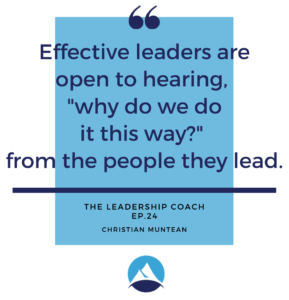The 3 Fundamentals of Successful Leadership

 Responsibility at Home
Responsibility at Home
At dinner, my wife and I were talking. One of us made the comment about someone stepping into a higher level of leadership and being given more responsibility. My oldest son, age 8, heard this and said, “I need to be given more responsibility.”
“You do?” I asked. “What would you like responsibility for?” “I need to be able to tell people what to do,” he replied.
“That’s not really what responsibility is about,” I said. “It’s about taking care of things or making sure that things get done. For example, I can give you responsibility for the living room. And now it is your job to make sure it stays clean and picked up.”
“No!” He protested. “I just need to tell people what to do!”
Who wants to be responsible?
Responsibility at Work
I started my first job when I was 15 and have worked since. Early on, I was no one’s favorite employee. My general rule for a job is that it needed to pay better than the last one, look fun, and require as little actual work as possible.
When I was 20 that changed. I started a coffee shop with two other friends. We did everything. We remodeled the space, learned about coffee, food service, and health codes, business startups, and management, the myriad of laws and regulations. We built relationships with vendors and set up supply. We dealt with the public and customers, some of whom were great – some of whom were not.
We hired staff. Soon, I was managing over 30 people. Many were just like myself from a few months earlier: Unmotivated and wanting more pay for less work.
One of my partners quit a few months in. The other had a full-time job and was rarely involved in managing the shop. It was on me to get results. I discovered that “being able to tell people what to do” was a lot less powerful and exciting than I thought. In fact, it was an enormous amount of work.
Many of these people that I could boss around als0 needed constant oversight and training, had their own ideas, quit whenever they wanted, didn’t listen, didn’t show up, cried, complained, or generally created more work than they accomplished.
Success (or even just survival) depended on me. No one else was getting up every morning to push the same rock up the hill.
I discovered responsibility. What it really feels like.
It changed my life.
Three Common-Sense Leadership Fundamentals That Are So Often Forgotten
I’ve worked with hundreds of owners and executives. A very wide variety of people from a wide variety of industries.
There are three common-sense fundamentals that seem to separate out the high achievers from everyone else. They will sound like common sense to you. Kind of like, “Everyone knows that.” But in spite of what everyone apparently knows, they often don’t happen.
Here is what the best leaders figure out early but a surprisingly high number of leaders never seem to discover:
- Leaders, especially CEOs, take 100% of the responsibility for organizational well-being and results. Many people climb or claw their way up a corporate ladder to be the CEO to pursue power and autonomy. They won’t say this in the interviews. It’s not on their LinkedIn profile. But they are really driven by a desire for the position (and its benefits – real or perceived) and a desire to assume and shepherd responsibilities.
This shows up in a lot of ways. They might be self-aggrandizing or bossy or domineering or insecure or self-protective.
They may show up when accolades are to be given. But there is a common tendency to deflect, minimize, or blame when things aren’t going right. In other words – they like being able to tell others what to do. But they don’t like the responsibility for what others actually do or don’t do.
If you want to provide excellent leadership, especially from the pointy part of the organizational pyramid, you will assume responsibility for the health and success of your organization.
- Leaders marshal and steward resources to accomplish results. Many executives are surprised to discover that gathering and stewarding resources for success is a big part of the job.
When you really drill down into it – this is essentially “the work” of leaders: Pulling together, aligning, deploying, and overseeing resources to accomplish results.
All organizations operate on the exchange of some kind of goods or services. Some kind of value exchange. Without it, no organization can survive. Your ability to manage and nurture this is what creates opportunities and sustainability.
Good economy or bad, feast or famine, it’s up to you to decide how to get and manage the resources you need to succeed.
During 2020, with all of the uncertainty and tensions of COVID19, the organizations that are thriving are also standing out in their ability to marshal and steward resources. They are doing this in the same industries and geographies that others say, “It’s impossible to succeed in.”
Don’t look to someone else to provide what your organization needs. It’s your role to get and steward it.
- Leaders lead (and take care of) relationships. Leadership is always a relationship. With people. The most effective leaders pay attention to and cultivate these relationships. They build, grow, refresh, and repair them.
Relationships take work. They aren’t always easy. Sometimes difficult decisions need to be made. But ultimately, we don’t lead machines. We don’t lead organizational systems. We lead people. A leader’s ability to inspire, challenge, motivate, or grow others is directly tied to the quality of that leader’s relationships.
You won’t lead well, for long, beyond the quality of the relationships you’ve built.
The Fundamentals For Organizational Success
I screen for the above when I take on new clients. It is nearly impossible to achieve good results with a client who won’t take responsibility, doesn’t marshal or steward resources, or care about their people. Many of these people seem very nice, committed, or even passionate. But at some level, they are either hoping someone else will do it for them or they don’t really take care of the people they interact with.
These leaders constantly need to be rescued and it’s basically not fun to work with them.
Now, nearly all of my clients can grow in one or more of these three areas. But there is a world of difference between opportunities for growth and not even trying.
If you are interested in executive leadership – be honest about your willingness to engage in these three fundamentals.
If you aren’t getting the results you want or need right now – explore which of these fundamentals need your focus and commitment.
Back To My Son
He’s only 8. But my goal is to teach him to take on these three fundamentals. If he assumes responsibility for the living room, if (under his own steam) he figures out what is needed to keep it clean and orderly, and if he treats everyone in the family well along the way, he’ll easily be successful. Additionally, he’ll gain respect and additional opportunities for more responsibility.
Obviously, this will be a learning curve for an 8-year old. It might take a while. But getting him up that curve is my responsibility.
Remember: If not you, then who?
Take good care,
Christian
Stay Tuned! My publisher has just notified me that my newest book The Successful New CEO should be available this month. Stay posted for giveaways and additional opportunities to engage with me around this topic.
Find the value of your company with my free assessment tool: The Value Builder System
The Value Builder System™ is a 13-minute online questionnaire that evaluates your business on the eight factors that contribute more to its attractiveness and value. These factors are scored on a scale of 1-100. Businesses that score over 80 are likely to command 70%-100% higher value than others.
In my podcast, THE LEADERSHIP COACH, we explore effective, high impact and enjoyable leadership. We talk about personal development and the attributes that all effective leaders possess. I interview other leadership experts who share their knowledge and tips to help you build the confidence to lead and learn the habits of good decision-making.
Opportunities
Free Resource: How To Accomplish More Without Doing More is a workbook I created to walk leaders through a process of helping you own your calendar, liberate your time, and still get more done. Download it for free!
Executive and Leadership Coaching: Do you feel overwhelmed? Are you not getting the results you expect from the effort you are putting in? Do you find yourself facing similar challenges time and time again? Would you like to change specific ways of relating or reacting? If you would like to experience predictable, measurable growth Contact me.
Profitable Exit Strategy Workshop: Are you a business owner or partner? Are you over 55? Are you starting to think about exiting your business or active management in the next 3-5 years?
- Are you curious about what your business might be worth?
- Would you like to discover the specific steps you need to take to increase its value and become highly attractive to a buyer?
- Are you planning on handing it over to family or employees and you want to ensure long-term success?
If so, contact me now
Article Categories
Popular articles

Download my free 10-page eBook:
How To Accomplish More Without Doing More:
Eight Proven Strategies To Change Your Life
Discover how to save eight hours during your workweek-even if you're too busy to even think about it. The resource every maxed out executive needs.


